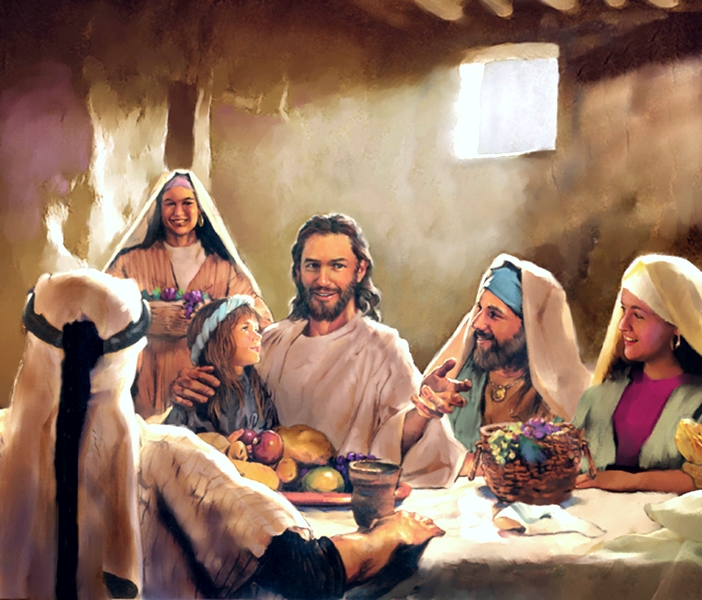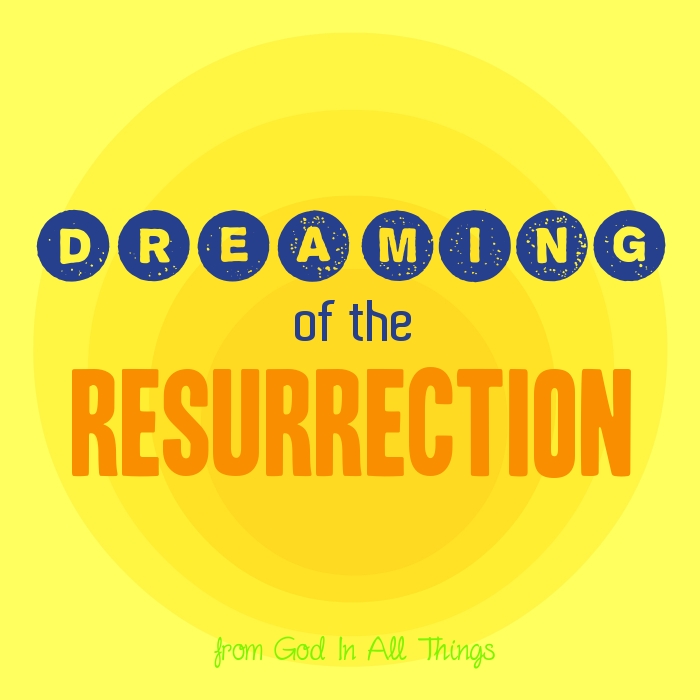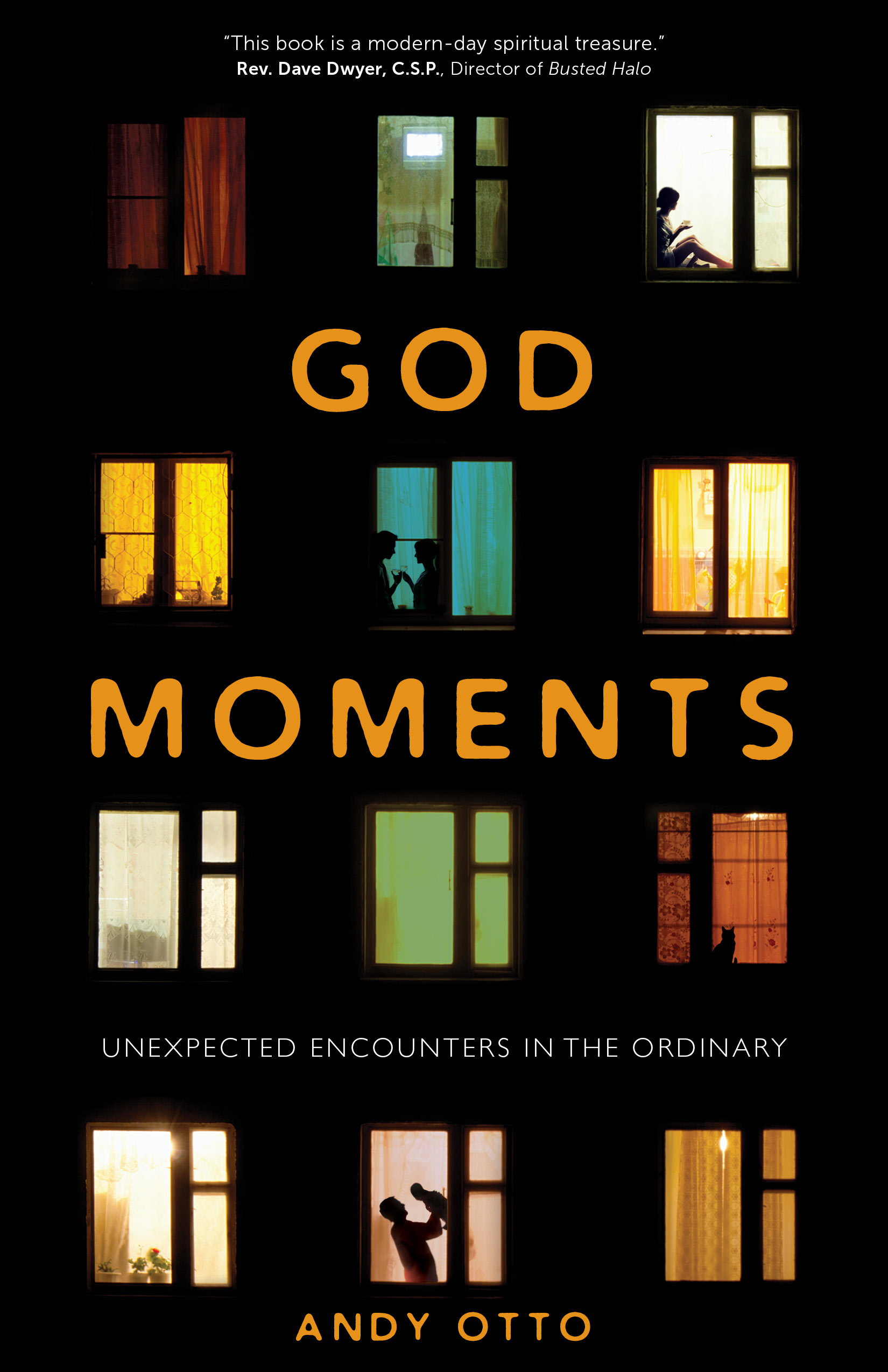Imaginative prayer comes from the Spiritual Exercises of St. Ignatius Loyola. In this prayer you are meant to create a space for encountering God through your own imagination.
Find a quiet space to pray. Read each line slowly and pause to consider the questions, your responses, and your feelings. It may even be helpful to close your eyes between each section to better allow for imaginative freedom. If your imagination leads away from the meditation, follow it; God speaks to you. You may also listen to the abridged version.
Begin by imaging yourself surrounded by your dearest supporters. Maybe they are your closest friends, your nearest family, your faith community, or your greatest role models. Who is present? Where are you meeting? What is significant about this place and these people?
As you look around at your beloved, you notice the face of Jesus in your midst. Somehow he is different. This is not the same man with whom you walked a few weeks ago on the way to Jerusalem, on the way to the cross. How do you notice this difference? Is it in his face? His laugh? His spirit?
 He suddenly turns to you and, in front of all your friends, asks about your own resurrection, your own new life recently. Though you might be shocked by this question at first, how do you eventually answer? What do you tell him about? What cross did you have to bear before reaching resurrection? What did resurrection feel like? What do you notice in telling your story?
He suddenly turns to you and, in front of all your friends, asks about your own resurrection, your own new life recently. Though you might be shocked by this question at first, how do you eventually answer? What do you tell him about? What cross did you have to bear before reaching resurrection? What did resurrection feel like? What do you notice in telling your story?
He asks how you recall his presence in this life, death, and resurrection. What moments come to mind? How did these moments feel? Peaceful? Joyful? Sad? Consoling? How has he worked through others to bring about your resurrection? What part have these friends played in your new life?
He turns to your friends and asks about their own resurrections. What stories do they recount?
What crosses have they borne? Were you there for their death and resurrection? How do they describe the presence of Jesus in their own experiences? What emotions surface as you listen?
You begin to notice that there are people at this party that you didn’t invite. Jesus has brought a few of his own friends. They come from different places than you, different experiences, different backgrounds, maybe even different parts of the globe. They are the sick, the dying, the oppressed, the overworked, the exploited, the marginalized. They, too, come forward to tell of their deaths and resurrections.
What are their names? What places are they from? Are they children? Women? Men? How are their stories different from your own? What deaths have they suffered through? How might you feel implicated in these deaths? What has new life meant for them? Perhaps you cry with them in their death. Maybe your tears turn to joy in their resurrection.
Though their stories are different from your own, you notice that their pain, their struggle, and their joy are similar. Once they have all finished, Jesus speaks to you all and reminds you all of your relationship in God. He says that it is only together that we rise and find our resurrection.
How might the lives of your friends, both old and here new, play a part in your past, present, and future resurrection? What connections do you see between your collective lives, deaths, and resurrections? How can you help each other live toward resurrection?
As you share your stories – crying, laughing, and hugging – the night becomes late. It is time to go home. Before you leave this space, what do you take with you? How is your new life calling you into living differently? How do you hope for more resurrection in your life? How are you called to let others assist that resurrection? How are you called into working toward the resurrection of others?
Holding onto these thoughts, you slowly return to the material world. Wiggle your toes and your fingers. Bring your consciousness out of your imagination and eventually back into the physical world.
After some time – a few minutes, hours, or days – come back to this meditation and consider what insights you might have found through it. What do you keep coming back to? What deeper affective movements does it speak to in you? How might God be speaking to you there?
Music by Kevin MacLeod









This was beautiful, moved to tears, tears of joy and desire to become more fully alive, more fully resurrected. Thank you.
This is very encouraging. Thank you for this wonderful Audio program!!!